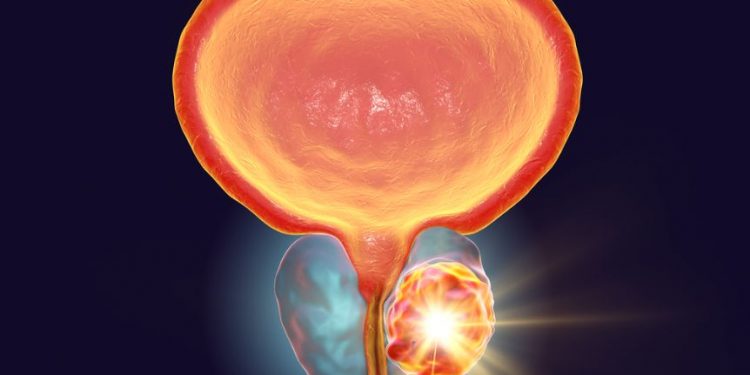A swollen prostate is where the gland gets bigger and starts to press against the bladder and urethra, making it difficult or painful to urinate. The condition is also called benign prostatic hyperplasia (BPH). In some men, the symptoms come and go, but in others, it may worsen over time and become more serious.
Your prostate is a walnut-shaped gland that’s part of your male reproductive system. It makes a fluid that goes into semen, and it sits in front of the bladder (the organ that holds urine) and around the tube that carries urine from your body (the urethra). It’s usually the size of an apricot or lemon by the time you are 60. It’s not clear what causes the prostate to grow larger, but it usually happens slowly over time as you get older.
The main symptom of an enlarged prostate is the need to pass urine often, every one to two hours, and especially at night. You might also have the feeling that your bladder is full even when you’ve just passed a lot of urine. You might also have pain or discomfort in your groin, and some men get blood in their urine.
You’ll probably be referred to a doctor who specialises in urinary problems (a urologist) for an examination. They’ll probably ask you about your symptoms and when they started. They’ll then do some tests to check if your prostate is enlarged, and to look for signs of infection or cancer. They might also do a rectal examination, where they insert a gloved finger into your bottom to feel your prostate.

Some of the tests for BPH include a urinary flow test and a urine sample to check for signs of infection or cancer. They may also do a transrectal ultrasound, where they bounce safe and painless sound waves off your prostate to create images of it. A radiologist-a specialist in medical imaging-interprets the results.
If you’re diagnosed with BPH, your doctor might recommend watchful waiting and offer medicines to reduce your symptoms, like a type of alpha-blocker. These medicines help to relax the bladder and prostate so that you can urinate easily. They might recommend a catheter for you, so that you can drain urine into a bag until the symptoms get better.
BPH treatment depends on how severe your symptoms are and whether you have any other health problems. If you have acute prostatitis, you need treatment straight away, so contact your GP or go to A&E if you can’t urinate at all.
Some of the treatments for BPH are less invasive than surgery, but they might not work for everyone. The most common surgery is a procedure called transurethral resection of the prostate (TURP). During this, your doctor inserts a small instrument through your urethra into your prostate to cut out the enlarged tissue. There are other types of surgery, including laser surgery and simple prostatectomy, which involve less invasive procedures.









